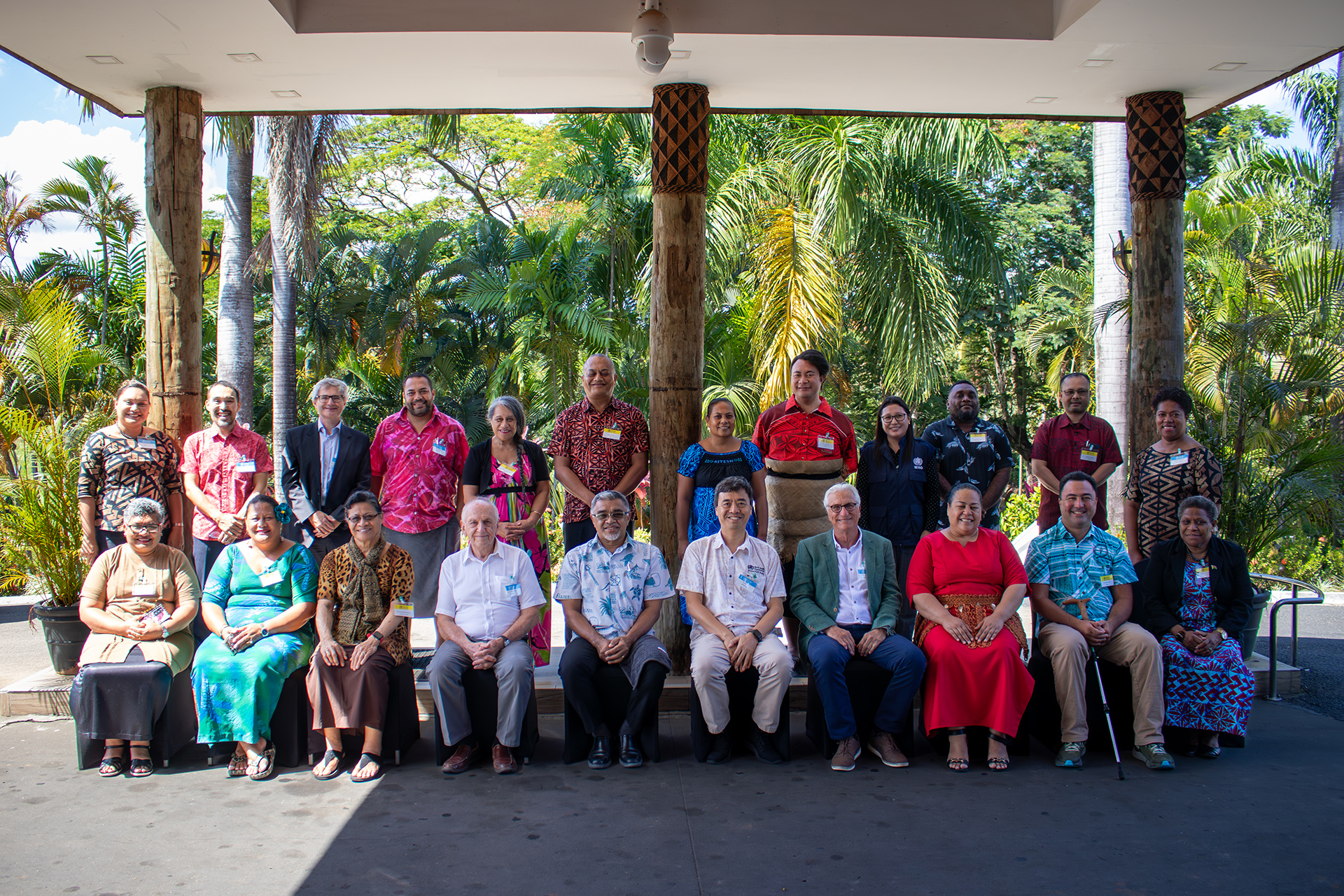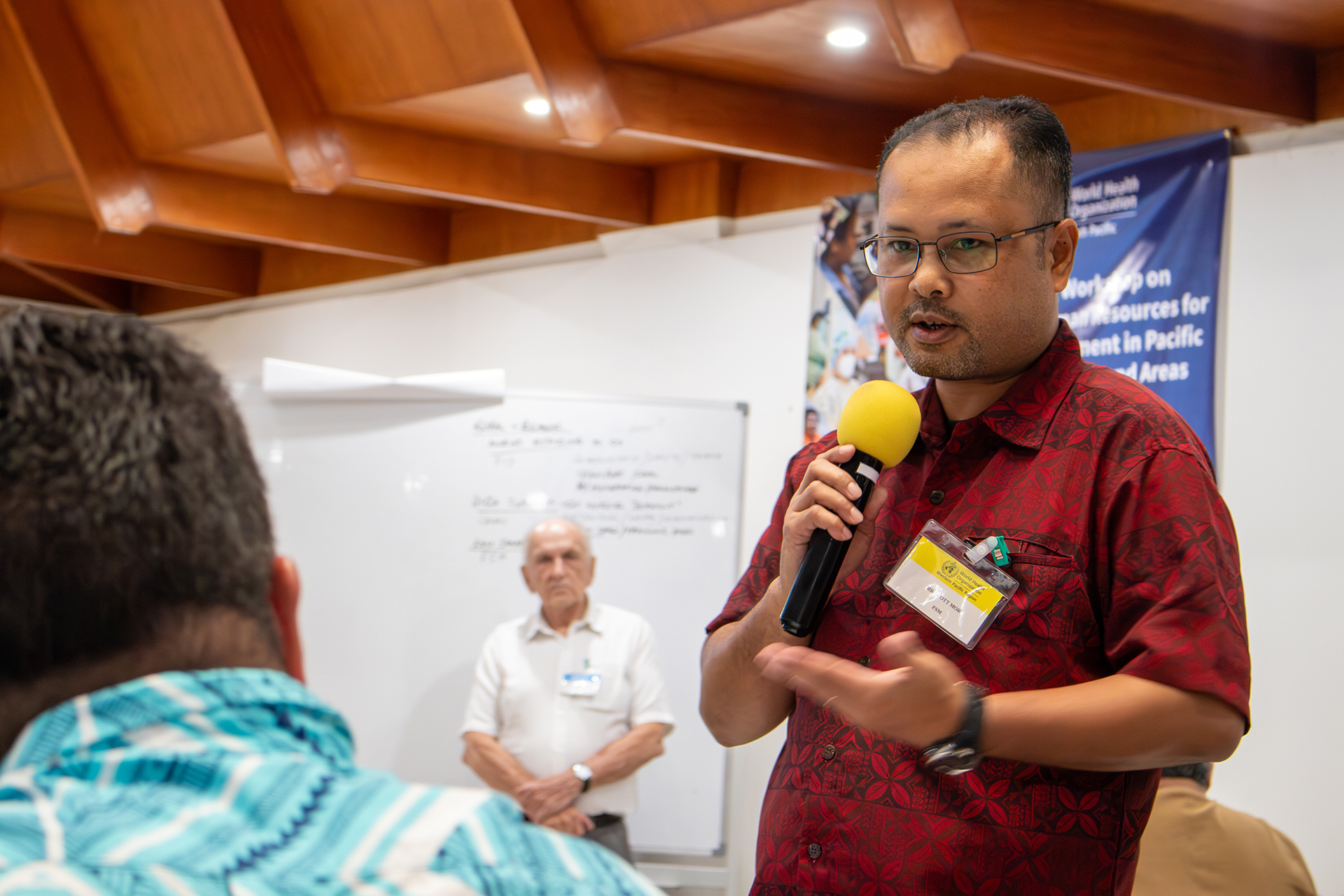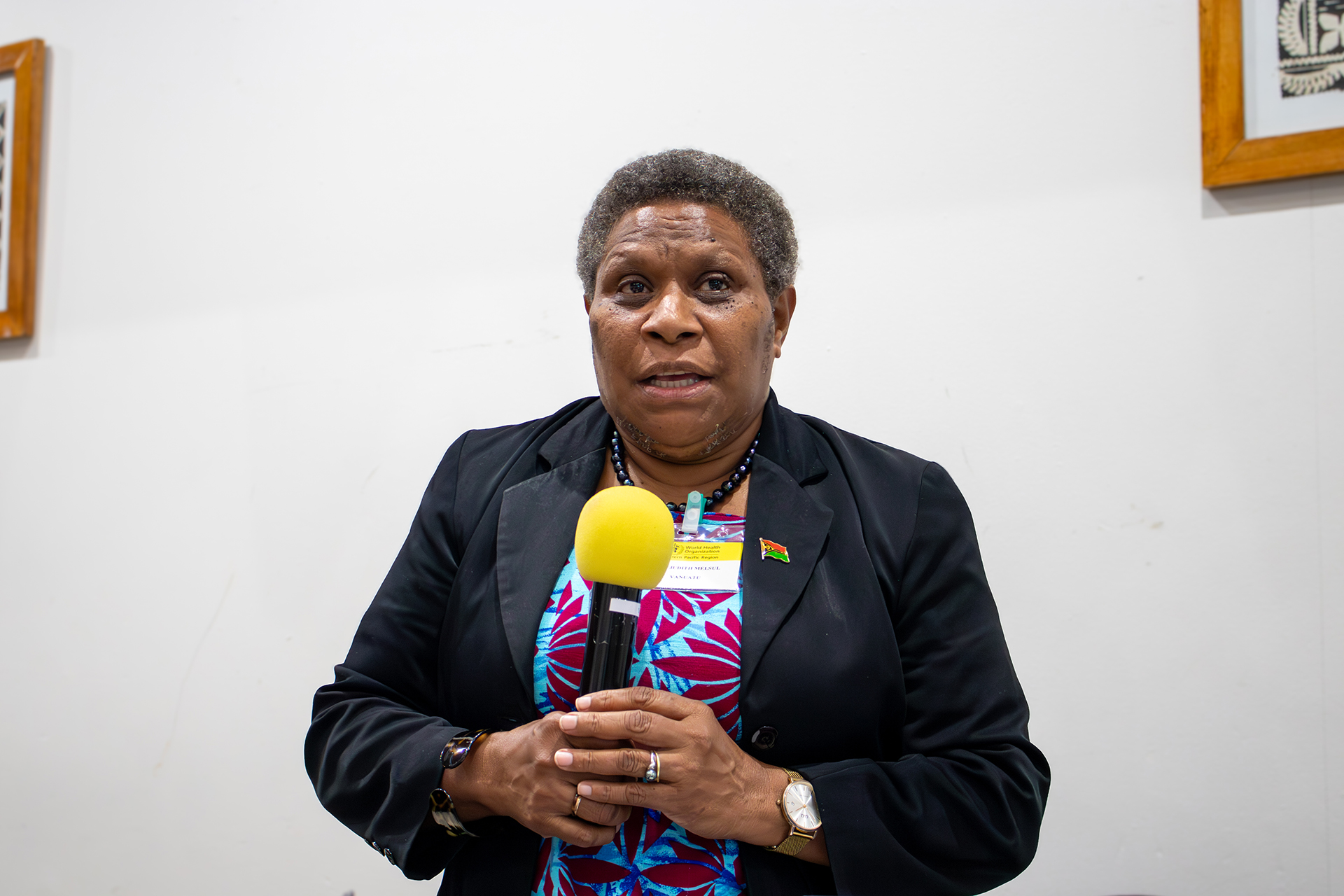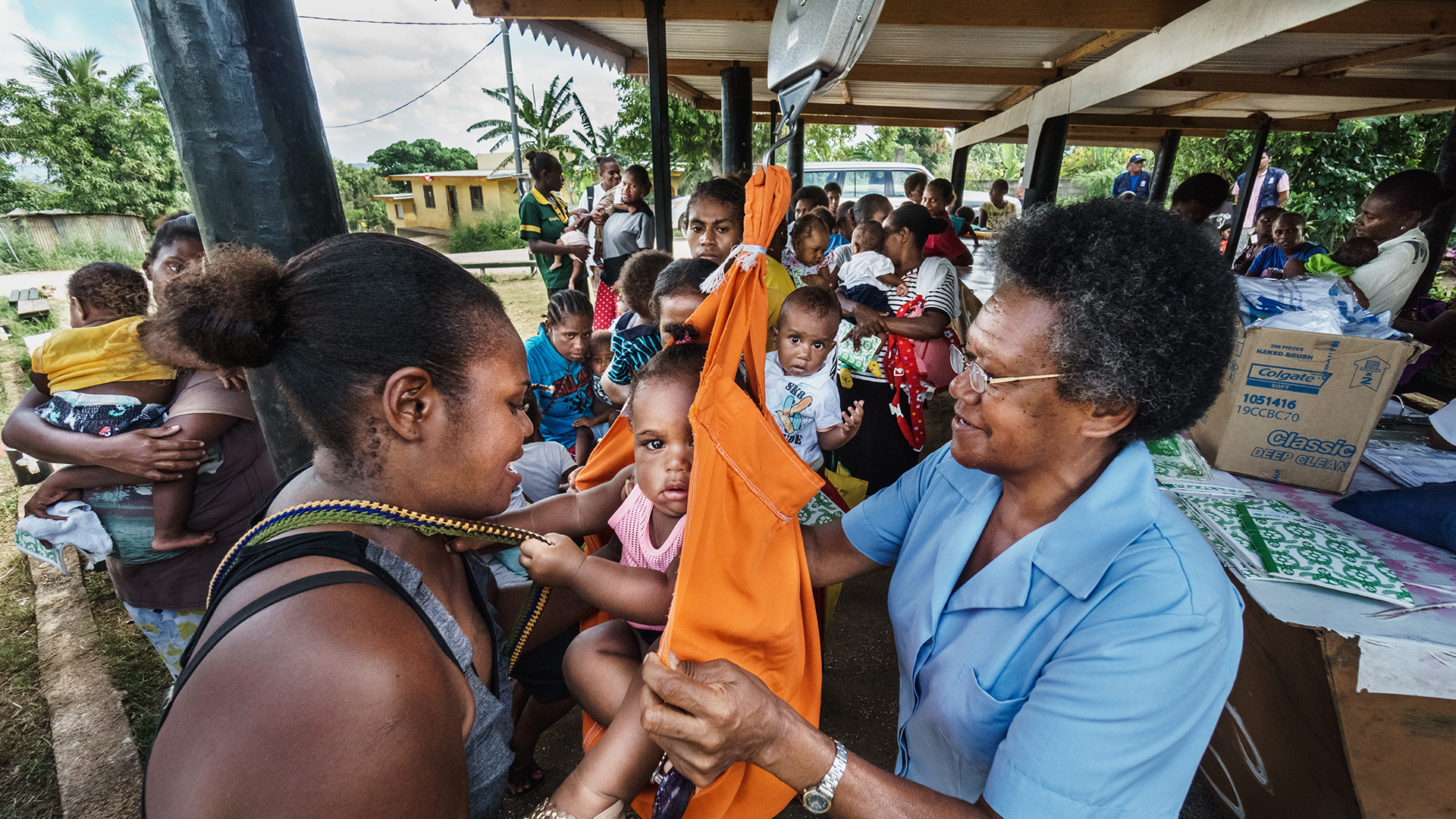In the vast expanse of the Pacific, where azure waters meet lush landscapes, the challenges faced by Pacific island countries and areas (PICs) in securing an adequate health workforce are as enduring as the tides. Over the past few decades, some progress has been made, but the persistent issues with the availability and quality of the health workforce remain, exacerbated by a steady outmigration of qualified health professionals.
Health leaders in the Pacific have long understood the critical need to strengthen their health workforce as part of achieving universal health coverage. High-level commitments made during regional forums, including Pacific Health Ministers Meetings and Pacific Heads of Health meetings, underscore the importance of this issue. However, translating these commitments into tangible action and results has proven challenging. The departure of skilled health professionals compounds the difficulties, as does the absence of resources, deficiencies in data to inform policy making, and the lack of up-to-date and costed national health workforce strategic plans.
In a recent workshop on human resources for health management organized by the World Health Organization (WHO) in Nadi, Fiji, focal points working on human resources for health from 10 PICs met to strategize on this very issue. On the side-lines of this workshop, we spoke with the focal points from the Federated States of Micronesia and Vanuatu to help shed light on the challenges they face and understand their plans to address this issue.

Facilitators from the three levels of WHO, together with human resources for health focal points from 10 Pacific island countries and areas, during the Strategic Human Resources for Health Workshop held in Nadi, Fiji on 30 October to 3 November 2023. With them are Fiji’s Permanent Secretary of Health, Dr James Fong (5th from left), and the Team Coordinator of the Pacific Health System and Policy Unit at WHO’s Division of Pacific Technical Support, Dr Jun Gao (6th from left). Photo: WHO/Faizza Tanggol
Federated States of Micronesia: Prioritizing health workforce standards and policies
In the Federated States of Micronesia (FSM), the challenge is colossal. Mr Scott Mori, Chief Operating Officer of FSM’s Department of Health and Social Affairs, acknowledged the primary issue in the country: salary disparities, even among states.
“That’s the top one challenge, salary,” Mr Mori said.

Mr Scott Mori (right), Chief Operating Officer of FSM’s Department of Health and Social Affairs, speaks during the Strategic Human Resources for Health Workshop held in Nadi, Fiji on 30 October to 3 November 2023. Photo: WHO/Faizza Tanggol
FSM is composed of four autonomous states – Pohnpei, Kosrae, Chuuk and Yap. Each state manages its own salary structure, leading to instances where one state lures another’s physicians with higher pay. In addition, there are also health workers that migrate out of the country for more attractive opportunities.
Addressing this challenge, Mr Mori proposed policy legislation to standardize salaries across states. He emphasized the importance of including all states in the planning process, recognizing that a top-down approach would not suffice.
He further emphasized the need to focus on developing policies and setting standards at the national level.
“Developing the whole plan for the nation is crucial,” said Mr Mori. “Training the health workforce is also important, having the number of, say, physicians or nurses per number of the population. We have huge work to do with FSM and we need to get this moving.”
“Setting certain standards and policies” emerged as their number one priority, a step towards a unified and equitable health workforce across FSM.
Vanuatu: Bridging the gap in health workforce education
Vanuatu faces a different but equally pressing challenge. The de-registration of the nursing school by Vanuatu Qualifications Authority’s (VQA) due to non-fulfilment of certain VQA standards created a void in nursing education and production. Ms Judith Melsul, Team Manager for Human Resource Management and Development in the Ministry of Health, explained, “There’s no nursing school since 2020, and we have the last cohort graduating next year. There’s a big gap.”

Ms Judith Melsul, Team Manager for Human Resource Management and Development in Vanuatu’s Ministry of Health, participates in the Strategic Human Resources for Health Workshop organized by WHO in Nadi, Fiji. Photo: WHO/Faizza Tanggol
With over 400 vacancies, their health workforce is falling far short of what is necessary to deliver health services across the country.
To fill this void, Vanuatu is forging partnerships with institutions in the Pacific, sending students overseas to study. Currently, 86 students are enrolled in institutions like Fiji National University (FNU), Pacific Adventist University (PAU) in Papua New Guinea and Solomon Islands National University (SINU).
“This year, we’ve secured 86 scholarships. In the next year, we’ll see how many we can get, but we wanted to secure a total of 100 scholarships. Eighty per cent is for nurses alone and 20% is for other cadres within Ministry of Health,” shared Ms Melsul.
In addition to sending students abroad with scholarships to study, Ms Melsul stressed the importance of doing more, including ensuring the right training, increasing graduation rates, and addressing impending retirements to maintain a robust workforce. Their top priority: completing the construction of a new training school by 2028 and producing more nurses to meet the overwhelming demand.
“We’ve secured the state land up in [Espiritu] Santo and the government has actually approved 2.2 billion to build a school. So, we have a group of people working on the institution,” said Ms Melsul.
She added: “I'm very, very hopeful. I guess when we really put our minds to it and doing all these, there’s this possibility of getting it better.”

Immunization day in the Selima community in Vanuatu. Photo: WHO/Yoshi Shimizu
Addressing the Pacific health workforce challenges: A call for concerted action
The challenges faced by FSM and Vanuatu underscore the need for a concerted effort to surmount the complex issues hindering the strengthening of the health workforce in the Pacific. In a ground-breaking move at the Fifteenth Pacific Health Ministers Meeting, health leaders from Pacific island countries and areas committed to a series of actions to tackle the enduring health workforce challenges:
1. National plans and policies: Ministers committed to establish or strengthen national plans and policies for human resources for health. Led by dedicated HR units collaborating with key stakeholders, these plans will be informed by current health workforce data, labour market dynamics, and population health needs.
2. Ethical mobility: Acknowledging that health worker migration will be an ongoing reality, ministers pledged to promote ethical mobility. Adherence to the WHO Code of Practice on International Recruitment of Health Personnel and the exploration of bilateral agreements aim to ensure fairness and ethics in health workforce movement.
3. Increasing the number of skilled health workers: A proactive approach involves collaboration with academic institutions and development partners to boost the number of trained health workers. This will see PICs and partners work to strengthen local training institutions and provide scholarships to cultivate specialists within the region.
4. Attractive health sector jobs: To enhance job satisfaction, ministers committed to initiatives making health sector roles more appealing. Competitive salaries, subsidies, and improved working conditions aim to retain current health workers and attract new talent.
5. Regional regulation platform: This platform will establish shared standards, an important stepping stone to the creation of pools of health experts which can be shared across countries.
6. Advocacy for funding: Ministers emphasized the need to advocate for increased internal funding, aligning investments with health workforce policies.
Moreover, the health ministers also urged development partners to support Pacific nations in increasing locally trained health workers, adhere to the WHO Code of Practice, and facilitate cross-country sharing of best practices in health workforce planning and management.
As the Pacific navigates the waves of health workforce challenges, it is crucial to recognize that the journey towards equitable access to quality healthcare requires collective and decisive action. The voices of FSM and Vanuatu serve as a call to action for the entire Pacific region to come together, overcome challenges, and build a resilient and motivated health workforce for a healthier future.
WHO's support for strengthening the health workforce in the Pacific is made possible by funding from the European Union.
